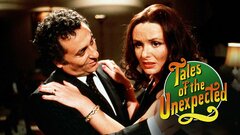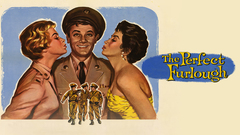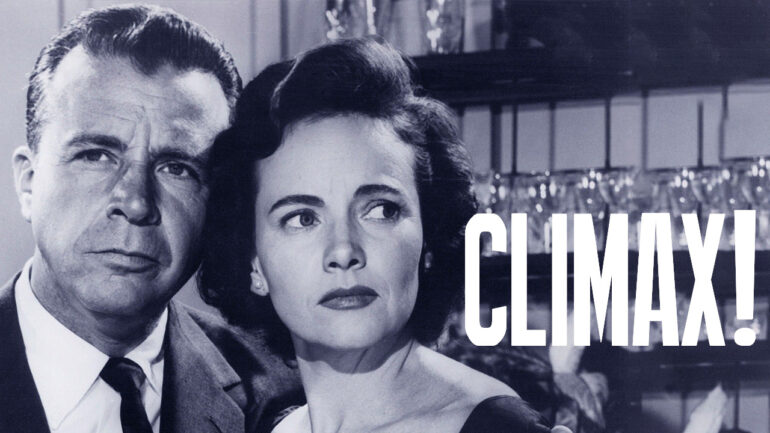A bona fide legend of Broadway, Elaine Stritch spent over five decades on the musical and dramatic stage, though her reputation as a sharp-tongued, unapologetically audacious personality spread far beyond the boards of New York and London. With her whiskey-soaked voice and wry comic timing, Stritch established herself as an unconventional leading lady in 1950s Broadway productions "Pal Joey" and "Bus Stop," with her show-stopping performance of the cynical and world-weary number "Ladies Who Lunch" from the 1970 musical "Company" becoming her career-long signature piece.
The long-legged dame starred in several British sitcoms during the 1970s and remained a fixture in the American theater scene during the 1980s and 1990s, touring nationally and making a small dent in the film world with an acclaimed role in Woody Allen's 1987 film "September." She was 77 years old when she unveiled the one-woman show "Elaine Stritch at Liberty" and earned rave reviews for the autobiographical music and monologue production that won a Tony, Emmy and new fans as it morphed from Broadway to screen to cabaret.
Into the new century, Stritch was tapped for scene-stealing character roles in film and TV including an Emmy-winning appearance on "30 Rock" (NBC, 2006-13), and enjoyed her status not only as a revered treasure of Broadway's old guard, but as a salty addition to any stage or screen gathering. Heath at the age of 89 in July 2014 led to fond remembrances from generations of fans and fellow actors.
Born on Feb. 2, 1925 (some sources state 1926) and raised the youngest of three girls in Detroit, MI, Stritch was the daughter of a well-to-do rubber company executive and his homemaker wife. Stritch was the entertainer of her family - always telling stories and doing imitations to the delight of party guests. The born entertainer with an early desire for a glamorous lifestyle moved to New York City in 1944, and with her fast-talking bravado, had no problem finding work off-Broadway and in regional theater, appearing in several productions a year and making her Broadway debut in the revue "Angels in the Wings."
She appeared in "The Little Foxes" and "Three Indelicate Ladies" before playing Trixie in an early pilot for the TV classic "The Honeymooners" (CBS, 1955-56). However she was fired by the show's star Jackie Gleason who complained that she was too much like him. Stritch's gig as Ethel Merman's understudy in "Call Me Madam" led to a headlining role in the national tour in 1952. That same year, her legendary portrayal of gossip columnist Melba Snyder in the revival of "Pal Joey" brought her critical raves, with her striptease send-up earning her reputation as an audacious personality. In 1955 she garnered her first Tony Award nomination for her role as the wry diner owner in "Bus Stop" (1955) on Broadway, and the following year she made her big screen debut with "The Scarlet Hour" (1956).
Expanding into film and television, Stritch provided comic relief as an American nurse in the overblown screen remake of "A Farewell to Arms" (1957) and starred in the short-lived sitcom "My Sister Eileen" (CBS, 1960 - 1961). She played a long-suffering cruise director in "Sail Away!" (1961), earning another Tony nomination for the role written expressly written for her by N l Coward; following the production to London after a successful Broadway run. Stritch replaced Uta Hagen in "Who's Afraid of Virginia Woolf?" on Broadway in 1962 and took a subsequent break from the stage, playing a lesbian nightclub owner in "Who Killed Teddy Bear?" (1965) and enjoying a featured character role on the series "The Trials of O'Brien" (CBS, 1965-66).
She toured nationally with "The King and I" and "Mame" before returning to Broadway to give a Tony Award- nominated portrayal of the acerbic Joanne in Stephen Sondheim's Broadway musical "Company" (1970), which gave birth to her signature song, the show-stopper "Ladies Who Lunch." Stritch turned the role into a career calling card. After earning another Tony nomination, she followed the production on a national tour, ending up with a run in London, where she moved into the Savoy Hotel and stayed for over a decade.
Stritch married actor John Bay in 1972 and starred in London stage productions including "Small Craft Warnings" and "The Gingerbread Lady" before landing headlining roles on two British sitcoms. In "Two's Company" (London Weekly Television, 1975-79), Stritch played an expatriate mystery writer who engages in verbal battles with her English butler (Donald Sinden); "Nobody's Perfect" (London Weekly Television, 1980-82) was a British version of the hit American sitcom "Maude" with Stritch in the lead role as the aging, acerbic lead. On the big screen, Stritch more than held her own in a dual role opposite John Gielgud and Dirk Bogarde in Alain Resnais' fascinating "Providence" (1977).
Following the death of her husband in 1982, Stritch moved back to New York City, where she began teaching at the Stella Adler Conservatory and had roles in regional productions around the country. She played Ellen Burstyn's mother on the short-lived ABC sitcom "The Ellen Burstyn Show" (1986-87) and after a long absence from the big screen, provided one of the high points of the Woody Allen film "September" (1987). Oscar buzz about her stellar performance essaying an aging sex symbol did not materialize into a nomination, but the actress remained busy with a role in the sequel "Cocoon: The Return" (1988), a recurring role on "The Cosby Show" (NBC, 1984-1992) and an Emmy Award win for her guest appearance on a 1990 episode of the legal drama "Law & Order" (NBC, 1990-2010).
Stritch returned to Broadway in 1990's "Love Letters," and appeared in several revues and concerts before an extended run as Parthy Hawks in a revival of "Showboat" in 1994. She quickly followed up with another Tony nomination for playing the alcoholic Claire in Edward Albee's drama "A Delicate Balance" in 1996. Her film career enjoyed a resurgence with a role as Dyan Cannon's mother in the uneven but charming Jack Lemmon-Walter Matthau vehicle "Out to Sea" (1997). In quick succession, she supported Richard Dreyfuss and Jenna Elfman in the comedy "Krippendorf's Tribe" (1998), and appeared opposite Norm MacDonald and Dave Chappelle in the crass comedy "Screwed" (2000).
After reuniting with Woody Allen in his madcap caper "Small Time Crooks" (2000), Stritch wrote and starred in the one-woman show "Elaine Stritch: At Liberty," which featured performances of over a dozen Broadway standards strung together by anecdotes from her personal and professional life - focusing particularly on her recent sobriety after years of alcoholism. The show was warmly received, and Stritch took the production on the road across the U.S. and U.K. while documentary filmmaker D.A. Pennebaker shot a film version that aired on HBO in 2004. The stage show won a Tony Award for Best Special Theatrical Event and for the television airing, Stritch won an Emmy for Outstanding Individual Performance in a Variety or Music Program, with her salty acceptance speech proving to be one of the ceremony's water cooler moments.
A resident of Manhattan's Carlyle Hotel, Stritch became a featured act there in 2005, performing a cabaret style version of her one-woman show that found the 80-year-old debuting an entirely new collection of songs to thrilled audiences. In 2007, she picked up a new generation of fans with memorable guest appearances on "30 Rock" (NBC, 2006-13), playing the domineering mother of Alec Baldwin's television executive on the late night television spoof. Stritch stole the show and earned an Emmy Award for Outstanding Guest Actress in a Comedy Series.
The following year she revived her one-woman show for a Hartford, Connecticut run, which was still going strong in her 80th decade. Meanwhile, she returned as Jack's high-maintenance mother for a third season episode of "30 Rock," which again earned her Emmy nominations for guest actress in 2009 and 2010. Colleen Donaghy proved to be Stritch's last onscreen role. Elaine Stritch died at her home in Birmingham, Michigan on July 17, 2014.










































































































